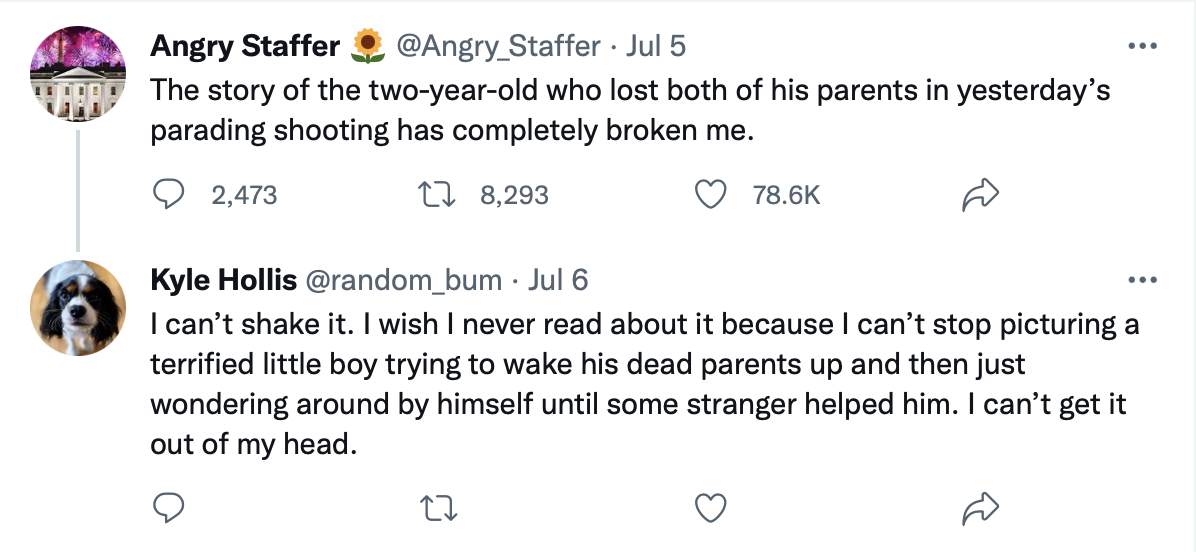Sick and tired of all the bad news? You're not alone
/“I can’t even.”
That was a common remark on social media in the wake of discovery that a mass shooting in Highland Park, Illinois, left a 2-year-old boy orphaned. He was found wandering in the street. “Are Mommy and Daddy coming soon?” he later asked his grandfather.
I can’t even.
Of course, what’s the unspoken part of that sentence?
“I can’t even comprehend something so awful.”
“I can’t even imagine what life will be like for him.”
“I can’t even believe we live in a society where that could happen.”
All of the above.
And for some people: “I can’t even bring myself to read the news these days.”
It’s bad out there: COVID, the Ukraine war, mass killings, political insanity, add your own. Many people decide they just don’t want to read or watch it anymore. They engage in “news avoidance.”
According to a Reuters Institute survey released last month, 42% of U.S. respondents said they often or sometimes actively avoid the news. Of those, 49% said they did so because consuming news “had a negative effect on their mood.”
Other popular reasons, among all respondents across six continents, were too much news about politics and COVID (43%) and getting “worn out” by the amount of news (29%).
A study published in the academic journal Digital Journalism in 2022 found that in the U.S., “burn-out or exhaustion related to news consumption was mostly due to the political atmosphere after the presidential election in 2016.”
It added, more broadly, that “interviewees expressed the news being ‘too much,’ referring to the excess of negative (mood) the news was producing, feeling like it was more than they could handle – intolerable, even. Media’s tendency to focus on negative news seems to be one of the main factors that helps to explain news avoidance.”
_______________________________________________________________________________________________
News organizations obviously don’t want people tuning them out, but what to do about this?
One good suggestion is to focus on solutions to the problems that create bad news. Report on ideas and actions that have been shown to work, perhaps somewhere else in the world, or that at least offer some hope. Unfortunately, listening to decision makers deny common-sense solutions can be infuriating, as well. I, for instance, am a steadfast news avoider whenever Mitch McConnell begins to talk about mass shootings.
Some balancing of content is a good idea, too. That means looking for stories that can inspire and uplift. There are heroes in the world and they’re newsworthy. I used to scoff at newsrooms that formalize and label “good news” content because often the topic choices are unexceptional and boosterish. I’m less of a skeptic today.
One idea that the news media don’t need to consider: Downplaying the bad news. Yeah, I’m sick of all of it, too, but reality is reality. We can talk about the harm of sensationalizing, but resolving issues starts with awareness, attention and, yes, some degree of disgust. We don’t need to avoid that.


